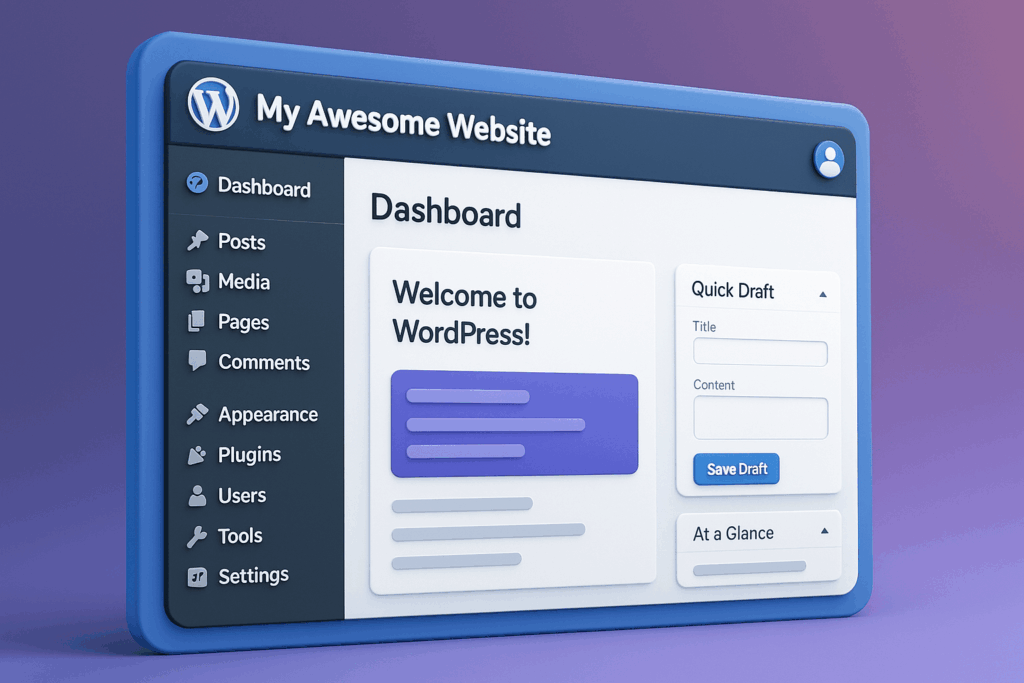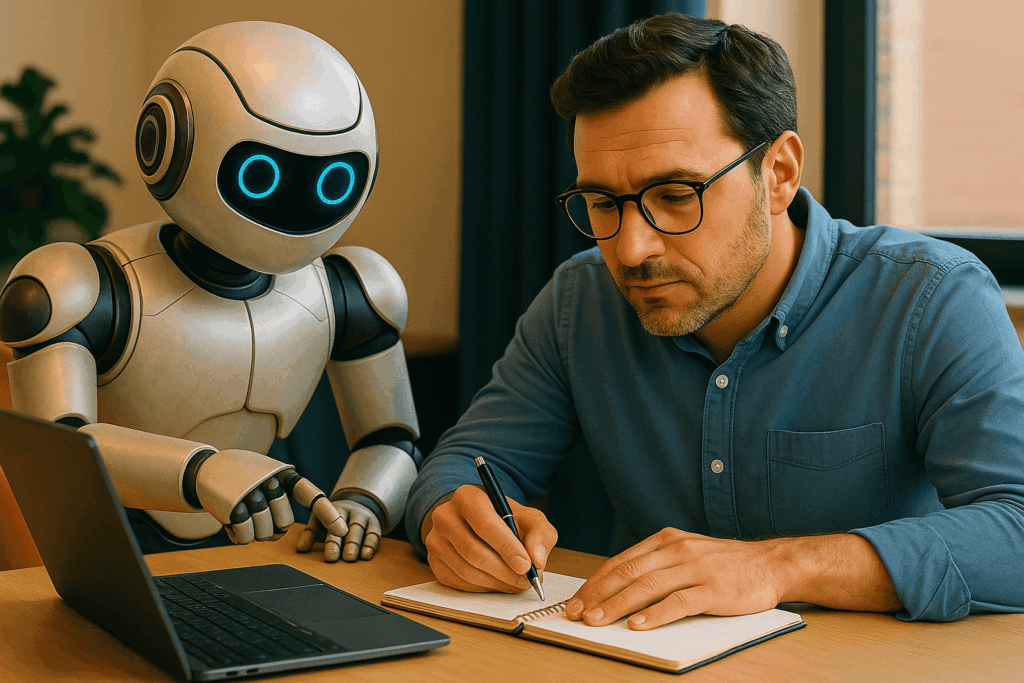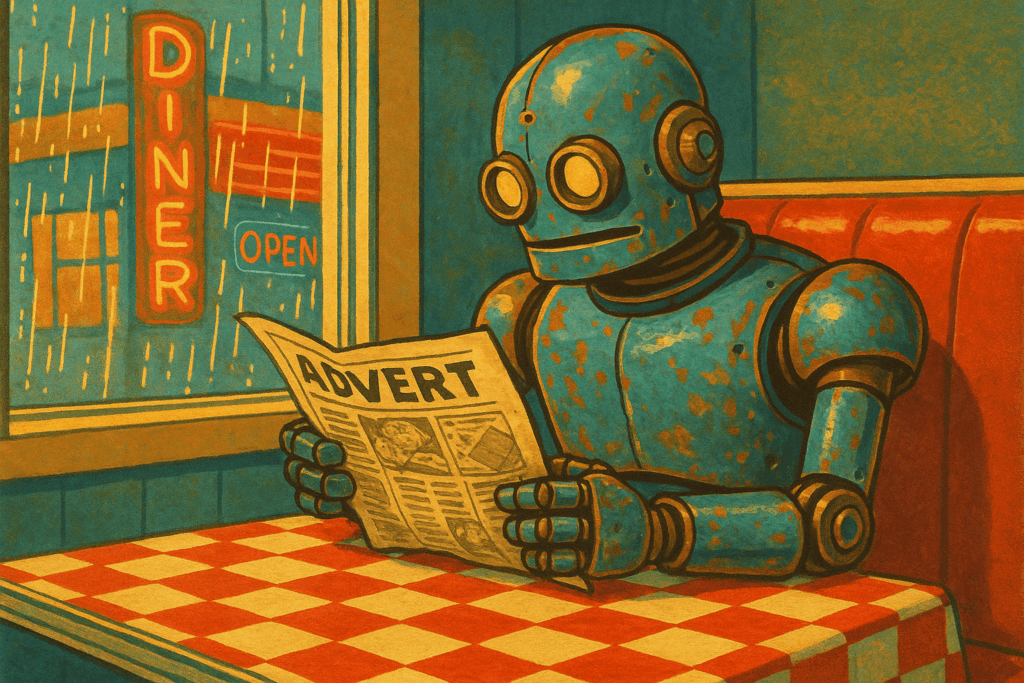In our experience at Burst Digital, we’ve found that search engines, including Google, do not penalize content solely for being generated by artificial intelligence (AI). Their primary focus is on the quality and relevance of the content, regardless of its origin. Google’s algorithms are designed to evaluate content based on factors such as originality, usefulness, and adherence to their Search Essentials guidelines. Therefore, AI-generated content that is well-crafted and provides value to users is not inherently penalized.
Click here to learn more about how you can leverage AI to supercharge your SEO!

Understanding Google’s Stance on AI-Generated Content
Google has clarified that its priority is to reward high-quality content, whether human or AI-generated. The emphasis is on content that demonstrates Expertise, Experience, Authoritativeness, and Trustworthiness (E-E-A-T). This means that as long as the content is informative, original, and valuable to readers, it aligns with Google’s guidelines.
However, SEMrush highlights that while AI-generated content can rank, poor-quality, repetitive, or misleading content—whether AI-generated or not—can still be penalized.
Potential Pitfalls of AI-Generated Content
While AI-generated content isn’t penalized per se, there are potential issues that can negatively impact search rankings:
- Quality Concerns: AI tools might produce generic, inaccurate, or shallow content, which can be flagged as low-quality by Google’s algorithms.
- Duplicate Content: Some AI-generated content may unintentionally mirror existing content, leading to duplication. Google actively devalues sites with repetitive information (321 Web Marketing).
- Lack of Originality: AI content often lacks unique insights or human touch, making it less engaging for readers and reducing its ranking potential.
These pitfalls highlight the importance of human oversight in the content creation process to ensure accuracy, depth, and originality.
Best Practices for Using AI in Content Creation
To effectively utilize AI tools while staying in line with SEO best practices, follow these strategies:
1. Prioritize Quality and Relevance
Ensure your content is informative, accurate, and audience-centric. High-quality, well-structured content is more likely to perform well in search rankings.
2. Incorporate Human Oversight
AI can draft articles, but human editors should review and refine the content to improve clarity, engagement, and factual accuracy. In our experience, this human-AI collaboration significantly boosts the authenticity and value of content.
3. Avoid Duplicate Content
Use plagiarism-checking tools like Copyscape or Grammarly’s Plagiarism Checker to ensure originality. Google penalizes duplicate or overly similar content, even if it’s AI-generated.
4. Maintain Ethical Standards
Avoid black-hat SEO tactics like keyword stuffing or cloaking, which can trigger search engine penalties. Instead, focus on providing real value to your readers.
5. Stay Updated with Google’s Guidelines
Google regularly updates its SEO best practices. Stay informed by following resources like Google Search Central and SEMrush Blog to ensure your strategies remain compliant.
Burst Digital’s Approach to AI-Generated Content
At Burst Digital, we leverage AI as a tool to streamline content creation while maintaining a human touch. Our process includes:
- AI-Assisted Drafting to speed up ideation and first drafts.
- Expert Human Editing to add unique insights, correct errors, and optimize for SEO.
- Custom Content Strategies tailored to your brand and audience.
In one of our recent projects, a client saw a 40% increase in organic traffic within two months after we optimized their AI-generated blogs using our hybrid approach.
If you’re looking to optimize your AI-generated content or integrate AI into your SEO strategy, contact us today. We’ll help you navigate the evolving SEO landscape and boost your search visibility.



